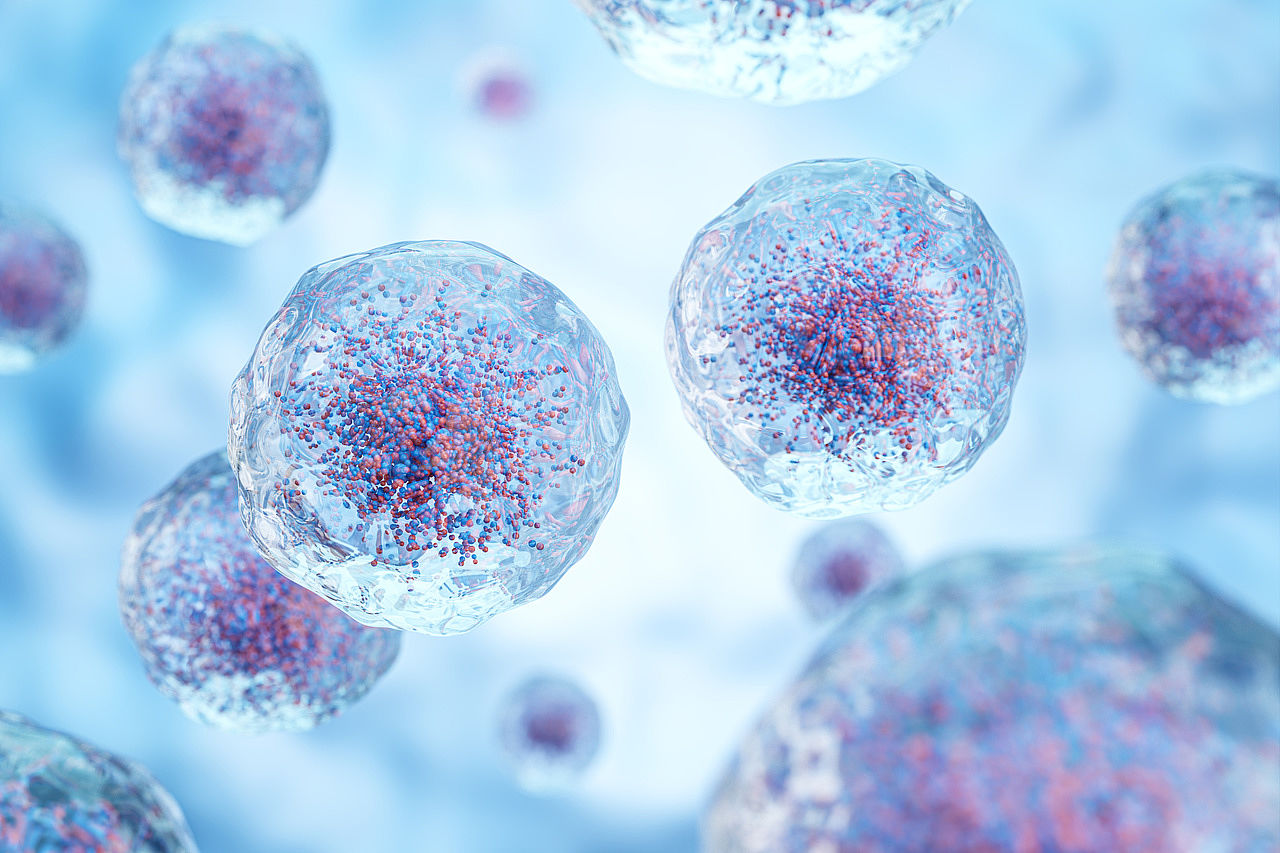Heart diseases such as myocardial infarction or stroke often affect older, otherwise healthy people. It has long been unclear why they become ill. A few years ago, however, medical researchers stumbled upon a new clue: CHIP mutations. CHIP stands for clonal haematopoiesis of indeterminate potential. Stem cells in the bone marrow make blood. If a stem cell carries a mutation, it passes it on to all the white blood cells that come from it - for example, monocytes and macrophages, which are part of the immune system. About 10 to 30 percent of patients with cardiovascular disease have CHIP mutations.
A CHIP mutation can affect several genes. One commonly altered gene is DNMT3A. Heart patients with this gene mutation are particularly prone to inflammation-related worsening of their disease. However, the number of cells with a CHIP mutation in the blood is relatively low, usually in the low single-digit percentage range, but it can be as high as 20 per cent. "The first question of our investigation was therefore: How can such a small number of affected cells have such a large impact on health?" says Prof. Wesley Abplanalp, first author of the study. He conducts research at the Institute for Cardiovascular Regeneration and at the Cluster of Excellence Cardio-Pulmonary at the Goethe University Frankfurt, which is part of the DZHK RheinMain partner site. The researchers analysed cells from patients with CHIP mutations to determine how the mutated cells affect the blood. One of the key questions was, “Do only the mutated cells have a pro-inflammatory effect, or do they also have a paracrine effect, i.e. do they give signals to other cells to participate in promoting pathological processes?”
To investigate the relevant processes in circulating immune cells, the researchers developed a customised technology: they combined single-cell RNA sequencing (scRNA-seq) with Oxford Nanopore long-read sequencing, which allows full length transcripts to be read and therefore find mutations in genome sequences. For example, Prof Wesley Abplanalp's team identified mutated DNMT3A genes in monocytes from heart failure patients and determined gene expression at the single cell level. The researchers compared the mutant cells with those without the mutation, analysing tens of thousands of cells. "We wanted to understand how mutant cells are activated, how they activate non-mutant cells and how this leads to increased inflammation," says Abplanalp.
CHIP monocytes induce inflammation in other
The study yielded two important results: 1. Monocytes are the most activated by the DNMT3A gene mutation. This was shown in the cell analysis by numerous changes in gene expression. The activated signalling pathways are known to promote inflammatory processes in the patient's body. 2. The highly altered and activated monocytes send additional signals to other non-mutated monocytes, which also have an inflammatory effect. In addition, mutant monocytes also stimulate other immune cells, such as T-cells, which do not have a CHIP mutation, to become more inflammatory.
"The process is comparable to the actions of a small group of politicians with a particular cause. They look for allies and multipliers. These may not be as convinced of the cause as the initiating group, but they help to achieve their goals," says Abplanalp. For the researcher, CHIP is the main driver of cardiovascular disease. He was most surprised by the strong effect of the mutated DNMT3A gene on monocytes: "We found the most differentially regulated genes in monocytes compared to other cell types with this mutation. Other immune cell types, such as T or killer cells, can also have CHIP mutations. However, these immune cells are not as strongly affected as monocytes.”
Study in CHIP patients planned to inhibit inflammation
The findings could be used to develop targeted therapies for heart patients with CHIP mutations. According to Abplanalp, it is already possible to use genotyping to find out which patients with cardiovascular disease have CHIP mutations and would benefit from a specific treatment. The DZHK is planning a clinical trial to investigate how affected patients respond to anti-inflammatory therapies.
The DZHK was the lead sponsor of the trial. "It was fantastic to be able to set up this pipeline at the Goethe University in Frankfurt and to be able to carry out the complex studies required. There are very few places in the world where this kind of work is possible," said Abplanalp. The next step will be to look more closely at how cells with CHIP mutations affect heart tissue.
Publication: Cell-intrinsic effects of clonal hematopoiesis in heart failure. Wesley T. Abplanalp, Bianca Schuhmacher, Sebastian Cremer, Maximilian Merten, Mariana Shumliakivska, Igor Macinkovic, Andreas M. Zeiher, David John & Stefanie Dimmeler, Nature Cardiovascular Research volume 2, pages 819–834 (2023)

